Deuteronomy 16:22, You shall not erect for yourselves a pillar [Heb. matstsebah], which YHVH your Elohim hates.
The Anti-Biblical, Demonic Origins of Obelisks, Steeples and the Christmas Tree
The tentacles of paganism are long and deep. They reach back to the earliest times of recorded history, and forward to modern times. One has to look no further than to church steeples and Christmas trees in the, supposedly, biblically-based Christian church. If the Bible not only forbade the Israelites from copying these pagan customs, but commanded them to destroy them, are past biblical prohibitions no null and void these relics of paganism are suddenly now kosher and acceptable thousands of years later in the Christian church? This is an issue that honest truth-seekers need to explore if they are earnest about aligning their lives with the Word of Elohim.
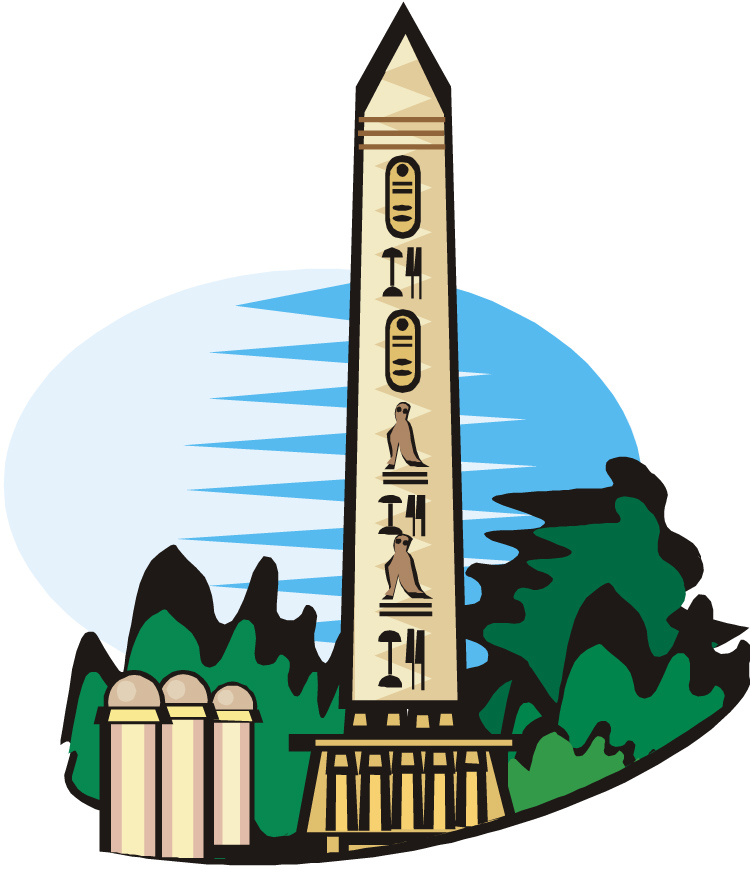
The word pillar/VCMMN) in Deuteronomy 16:22 is the Hebrew word matstsêbâh and literally means “stand (upright), be set (over), establish.”One of the derivatives of this word is pillar or standing image. Such pillars were erected for pagan religious purposes (see The TWOT). C.J. Koster in his book The Final Restoration (reprinted as Come Out of Her My People) cites historical evidence that connects these pillars histroically to the Egyptian and Babylonian obelisk, which was connected to sun worship (see also https://en.wikipedia.org/wiki/Obelisk) and the phallic symbol (also https://en.wikipedia.org/wiki/Phallic_architecture). He states that these pillars were commonly erected at the entrances to pagan temples (also see https://en.wikipedia.org/wiki/Obelisk) as fertility symbols in honor of the sun deity (Koster, p. 79).
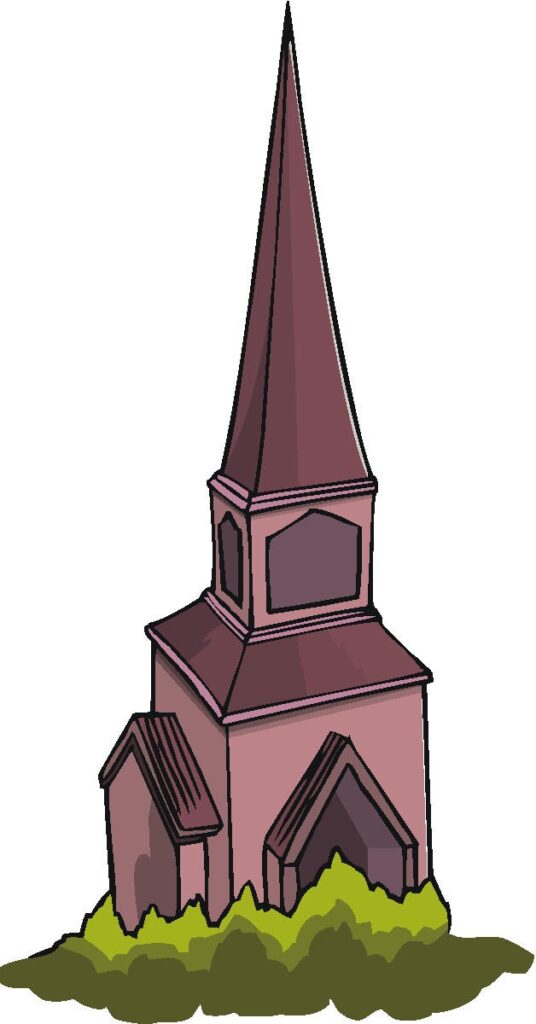
Even an Egyptian obelisk of this sort sits in the very center of the Catholic Church’s St. Peter’s Square in Rome, and it is traditional for obelisk-shaped steeples to be found on most Christian churches to this day in the form of a steeple (ibid., p. 81). Richard Rives in his book, Too Long In the Sun,makes the same connection between the Egyptian obelisk, Canaanite standing pillars and the Christian church steeple (p. 136). This then begs the question: why then do we find these pagan symbols associated with Christianity?
What is the point here? YHVH commanded Israel to destroy these pagan symbols and to have nothing to do with them. They were abominations that would defile YHVH’s set-apart people. Have his people heeded his command? Many of these remnants of ancient pagan cultic practices remain in both the Protestant and Catholic churches to this day (e.g., Easter/Ishtar, Christmas/Saturnalia, the Christmas tree/Tammuz tree, the Christmas wreath/a pagan fertility symbol, Lent, Easter eggs and rabbits, and the list goes on and on). Does YHVH’s command in the Book of Revelation to his people of the end times to come out of spiritual Babylon now take on a new relevance to you?
And I heard another voice from heaven, saying, Come out of her [i.e., Babylonian pagan practices and antichrist religious involvements], my people, that ye be not partakers of her sins, and that ye receive not of her plagues. (Rev 18:4)
Pillar. The pillars that the Canaanites erected to worship their gods were actually phallic symbols commemorating when the demon gods (or sons of Elohim) left their “first estate” (Jude 1:6) and had sex with the daughters of men to create their nephilim or demigod children in the pre and post flood world (see Gen 6:2–6).
The Canaanites were not the only indigenous ancient people to have such a tradition of the gods mating with humans to create supernatural offspring. So did the Yoruba tribes of West Africa as well as the native peoples of Madagascar, Polynesia, New Zealand, along with the Hopi, Acoma, Arihara and Apache of North America, Celts, Japanese, East Indians, Australians and Scandinavians. “Trees were employed…as facilitators, or places of meeting/joining of the gods of heaven with Mother Earth, while their branches reach out to Father Sky, of the gods of heaven…[T]rees form a bridge between heaven and earth and are a symbol of regrowth (reincarnation)…Because trees can live for hundreds and hundreds of years, their extraordinary life span represents the immortality of the gods and the immortal spirit given to the original Nephilim. The World Tree is also the Tree of the Knowledge of both good and evil, for knowledge in pantheistic culture holds the key to immortality and reincarnation” (The Genesis 6 Conspiracy, p. 122, by Gary Wayne). “A Judeo-Christian, then, should be wary of the Christmas tree, for the immortal evergreen represents the meeting place of the gods and Mother Earth and the creation of Nephilim” (ibid., p. 123).
The act of the fallen angelic sons of Elohim mating with the daughters of men (Gen 6:2–4) and the results thereof literally turned the pre-flood world upside down resulting in YHVH’s most severe judgments against these evil-doers and those who followed them. The phallus to this day is the object that represents this act of rebellion and represents the unlawful sexual union between heaven and earth that created demons. Peter and Jude refer to this in their epistles (2 Pet 2:4; Jude 6).

Deuteronomy 16:20, Appoint judges…twist the words of the righteous. Although this verse specifically relates to judges in civil legal matters, the remez or hint of this passage extends into anyone in a position of leadership were decisions and judgments are being made. This would also include pastors or other church leaders and is thus a word of warning to anyone in a position not only of civil but also spiritual authority or leadership where money could be involved. As regards pastors of churches, it is imperative that the tithes and offerings of the so-called “giving units” or donors (especially the wealthier ones) of a congregation in no way influence the preaching and teaching of the word of Elohim one way or the other. This can easily and inadvertently occur if a large donor is guilty of a particular sin and the preacher, so as not to offend that donor, tempers down his preaching against that sin so as not to offend that donor resulting in a loss of revenue to the church or to the pastor if his wages are paid out of church revenues. The twisting of the words of righteousness can easily and almost unwittingly occur in the psyche of a judge or pastor-teacher due to the fallen nature of man which is naturally greedy, materialistic, self-serving and desirous of social acceptance. A true judge and preacher of righteousness must disavow himself of any desire for personal gain from his ministry involvements and acceptance from his peers and be willing to execute the Word of Elohim regardless of who it may offend sinners. He must teach and preach the Word of Elohim and chop away at the trees of sin, unrighteousness and pride regardless of where the proverbial wood chips may fall.
Deuteronomy 17
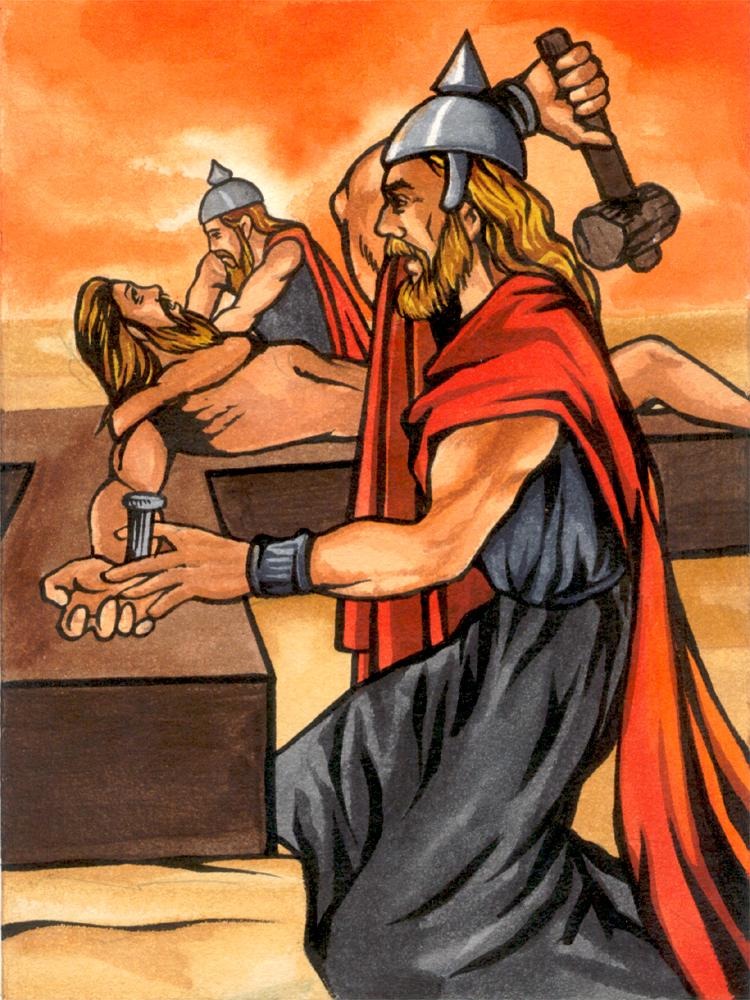
Deuteronomy 17:1–3, Sacrifice. Yeshua our Messiah and Redeemer offered himself on the cross for us as a spotless sacrificial Lamb without blemish. In a similar sense, YHVH instructs his saints to be “a living sacrifice, holy, acceptable” in service to him (Rom12:1). Do you give YHVH your best, or do you give him the crumbs and leftovers of your time, talent and treasure? For example, do you give YHVH the best part of the day (the morning) for prayer, Bible reading and devotion, or the end of the day when you are tired and ready for bed? Do you give YHVH the first fruits (tithe) of your income or the leftovers (or none at all)? Moreover, how are you helping to advance his kingdom on earth by using the talents, time and abilities he has given you, or are you using your energies and abilities to satiate the cares of this world and the lusts of your flesh?
Deuteronomy 17:5, Stone to death. The Torah’s commandment to stone individuals reveals the gravity that YHVH places on certain sins. Sadly, our personal view of crime and punishment is largely informed and influenced by the mores of our modern culture. What we consider to be humane or inhumane punishment is dictated by what a fallen, secular humanistic society has deemed to be just or unjust. The idea of a public stoning is anathema to almost everyone, yet this is what the Torah prescribes for certain sins. In reality and based on Jewish tradition, it is likely that this punishment was seldom carried out in ancient Israel; however; to the degree that it was, this would have been a strong deterrence for anyone thinking of committing such a sin in the future. Moreover, the death penalty obviated the necessity of burdening society with a penal system including prisons and the maintaining thereof. But most importantly, death by stoning reveals how serious the Creator was about not allowing certain sins to continue much less become prevalent in Israelite society. Evil was to be rooted out immediately in the most decisive manner and stoning punctuated the gravity of the situation in the collective societal consciousness of Israelite society. Under Torah’s code of law, there was neither the coddling of criminals nor the administering of mere wrist-slapping punitive actions upon those committing crimes. Sin was sin, and it had to be dealt with to protect the greater good and society’s general well-being.
Deuteronomy 17:6 (and 19:15), By the testimony of two or three witnesses. In the Bible, one could not be accused of a crime (i.e., a sin) without the testimony of two or three eyewitnesses. This admonition is repeated in the Testimony of Yeshua:
But if he will not hear you, then take with you one or two more, that in the mouth of two or three witnesses every word may be established. (Matt 18:16)
This is the third time I am coming to you. In the mouth of two or three witnesses shall every word be established. (2 Cor 13:1)
Against an elder receive not an accusation, but before two or three witnesses. (1 Tim 5:19)
He that despised Moses’ law died without mercy under two or three witnesses. (Heb 10:28)
Were this principle practiced today, most gossip and slander would stop if this commandment were followed, and thus much division and strife within the congregation of believers. Many media outlets would have little or nothing to report if they followed this principle since so much of the news that is reported, although it falls under the rubric of “free speech” and “freedom of the press” is, in reality, gossip, hear-say and slander and thus is evil.
How many times have you repeated hearsay and gossip without checking the source? Even if you know it to be true, is it really beneficial and righteous to repeat it to others? How many times have you been hurt personally by lies, gossip and slander by others about you? It is hurtful and destructive, isn’t it? One Jewish sage goes so far as to say that Messiah has not come back because of all the gossip and slander of the people of Israel. Perhaps. At the very least, the Spirit of Elohim is greatly grieved, our intimacy with Elohim is hindered and diminished, and our marriages, families, friendships and congregations are fractured, hurt or destroyed all because we speak things that should not be uttered about others.
How often do we accuse, slander and gossip about other people through use of the “evil tongue” (in Hebrew called lashon hara) without going through proper channels and following proper biblical protocols to resolve interpersonal conflicts as Yeshua instructed in Matthew 18? How often do we attack others and spread evil reports and accusations about others when we were not even eyewitnesses to what occurred or were not involved in the matter? How often do we attack YHVH’s leaders and accuse them of evil when there are no other eyewitnesses, which is against Scripture (1 Tim 5:19)? YHVH hates those who sow discord among brethren and lying false witnesses, and calls this practice an abomination (Prov 6:16–17, 19). So let’s all be more careful with our mouths!
Deuteronomy 17:2–5, Dealing with wickedness. Probably no one reading this is involved in any of the gross, idolatrous practices listed here, but there are those little foxes (or little sins) that spoil the grapes (Song 2:15) and the little bits of leaven (or tiny sins) that sneak into our lives and inflates or sours our lives like leaven that infects a whole loaf of bread. What idols or heathen practices, unrighteous world views, worldly attitudes, secular tendencies, profane habits and thought patterns or verbal expressions have you assimilated into your life that are keeping you from walking a higher and, hence, a more intimate and anointed walk with YHVH? Ask the Ruach haKodesh (the Set-Apart Spirit) to reveal these spiritual idols and strongholds to you so that you can rid your life of them.
Deuteronomy 17:8–13, Matters of controversy. How respectful and obedient are you to the spiritual leaders YHVH has placed over you? Or do you follow their wise counsel only if and when it suits you? Nowadays if one does not like congregational leadership for any reason, they simply leave that congregation and find a new one. In ancient Israel, this was not an option, nor was it an option in the first century. There was only one congregation in each town, and if there was a disagreement, people had to learn to work out their differences. What if we were in that situation today? How would that change your method of operation if you couldn’t just “cut and run” whenever things didn’t go your way or you got offended?
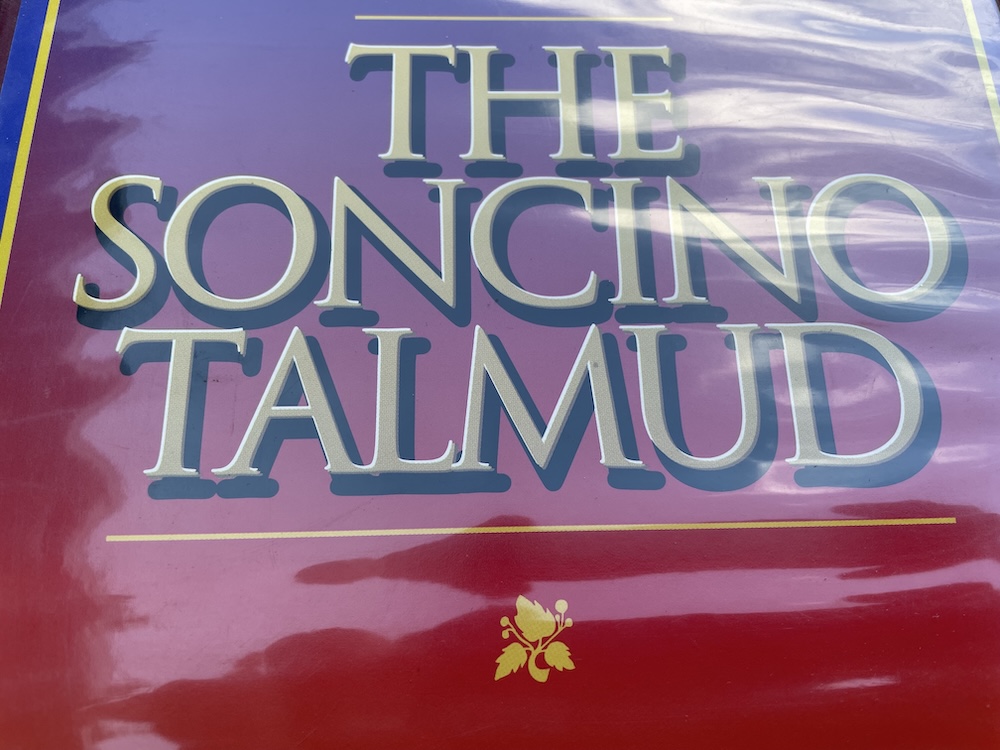
Rabbinic Justification of the Jewish Oral Torah Known as The Talmud. This Scripture passage has been used by rabbinic Jews as a justification for their so-called “Oral Torah,” or as Yeshua referred to it as “the tradition of the elders.” This oral tradition was eventually put into written form in the second century A.D. and was known as The Mishnah, which eventually evolved into The Talmud, which came hundreds of years later. Other Scriptures the rabbinic Jews use to substantiate their claims regarding the legitimacy of their Oral Torah include Deuteronomy 1:16, Exodus 24:12 and 34:27 (See Everyman’s Talmud, p. 146). Yeshua and the apostolic writers make references to the Oral Torah as well (see Matt 5:21, 27, 31, 33, 38, 43; 12:5; 23:2–3; 1 Cor 14:34; 1 Tim 1:14).
So what is the bottom line here? Are the saints supposed to follow the Oral Torah or not? Here are some guidelines on how to view any non-Scriptural rabbinic Jewish writings: First, does it contradict or line up with the Written Torah-Word of Elohim? If not, then reject it. Second, does it ultimately, even obliquely, point us to Yeshua the Messiah or away from him? If not, reject it. Third, is it historically accurate or is it fable and legend? If the latter, then it should probably be rejected. Finally, was it written during the Second Temple era or afterwards, when many rabbinic Jewish took a decidedly anti-Christian and anti-Yeshua bent in their writings? If the latter, then take it with a grain of salt and with a high degree of scepticism.
Frankly, studying the Bible itself with the guiding help of the Spirit of Elohim and Spirit-led, Yeshua-believing and Torah-obedient teachers should be sufficient to give the saints the information they need to have a right relationship with YHVH Elohim through Yeshua the Messiah (see John 14:26; Eph 4:11–16; 1 John 2:27). Extra-biblical sources like the Talmud, many of the Dead Sea Scrolls, the Apocrypha or the pseudepigraphal writings can be helpful for historical background information on a few subjects, but are of little value beyond that. They should never be believed if they contradict the Scriptures, nor should they be used to determine theology and or doctrine.
Finally, the purpose of the judges in Israel, as per Deuteronomy 17:8–13, was to apply and interpret the Torah to everyday life situations, and not to change the Torah or add to and subtract from it, which the Jewish Oral Torah often does. This is elevating the mind and traditions of man above the Word of Elohim, which both the Torah (Deut 4:2; 12:32 cp. Rev 22:18) and Yeshua forbid (Mark 7:8–13), and which, quite frankly, is idolatrous, humanistic and feeding from the tree of the knowledge of good and evil instead of feeding from the tree of life and, therefore, is an evil practice. It is acknowledging and acquiescing to the serpent’s lies at the tree of knowledge to question and then to ultimately twist or reject the divinely revealed Truth of YHVH Elohim!
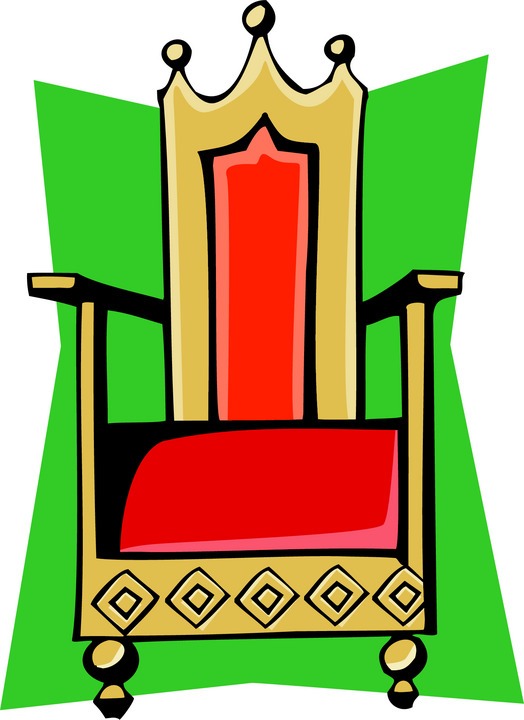
Deuteronomy 17:14–20, King over you. It is YHVH’s will for Israel to be ruled by a king. In the Messianic Era (or Millennium), King Yeshua the Messiah, the Son of David, will rule not only over Israel but over the entire world from Jerusalem. Moreover, King David will rule over Israel (Ezek 37:24), and the twelve apostles will rule over the twelve tribes of Israel (Matt 19:28). Likewise, the saints are currently preparing to rule and reign with King Yeshua as kings and priests during the Millennium (Rev 1:6; 5:10; 20:6). YHVH ordained righteous leadership to help guide his people in the ways of truth and righteousness.
When there is no leadership, everyone does what is right in his own eyes as occurred during the time of the judges. The Bible gives numerous examples of the chaos that results in a society or a group of people where there is no leadership. For example, The ArtScroll Stone Edition Chumash points out, “Two of the saddest episodes after Israel arrived in its Land—the graven image of Micah (Judg 17–18) and the atrocity involving the concubine at Gibeah (Judg 19–21)—are described by Scripture as having been possible only because there was no king in Israel (Judg 18:1; 19:1); had there been the leadership and discipline of a righteous king, he would never have permitted such outrages to take place” (pp. 1028–1029).
Elohim is not the author of confusion (1 Cor 14:33). Nowhere in the Bible does Elohim permit his people to be leaderless whether it was patriarchal leadership, Levitical leadership, the leadership of judges and prophets, kingly leadership, the leadership of apostles and elders culminating in the leadership of King Yeshua and the glorified saints that will be ruling with him as kings and priests in his millennial kingdom.
Numerous times in Scripture, YHVH not only expects his people to obey the righteous leaders that he has put in place, but even unrighteous civil leaders (at least until those leaders demand that the saints to disobey the higher laws of Elohim).
Many times in the Hebraic Roots Movement, one encounters folks who have been emotionally traumatized and hurt in the past by ungodly church leadership. As a result, many of these people now refuse to come under any leadership at all godly or otherwise. They pride themselves in establishing congregations and fellowships “where no one is the leader.” This is a recipe for disaster. For those of you who adhere to this unbiblical concept of leaderless congregations, I invite you to get back to me in one, two or five years and let me know who your experiment in this ungodly venture worked out. Eventually division and strife will tear such groups apart! After all, if everyone has an equal say and anything can go on, who is going to stand up and say “this is wrong” or “that is unbiblical”? When grievous wolves in sheep’s clothing come in to tear the flock apart, who is going to put these agents of Satan out of the fellowship?
No, leaderless groups are not a good thing. Those who want this are either naive when it comes to the machinations of human nature, or are they are rebels themselves and really do not Elohim to rule over them, since he is the author of godly, righteous leadership
Do you resist YHVH-ordained leadership? If you have been hurt or “burned” by unscrupulous and self-serving leaders in the past, do you now refuse to recognize YHVH-ordained leadership thus losing the blessings that such leadership could bestow on your life? Let’s not throw the proverbial baby of righteous leadership out with the bath water because of our past hurtful experience.
Deuteronomy 17:18, He shall write. The king was intimately to know the Torah, so that he could rule righteously based on the Word of YHVH. The Book of Revelation says that the saints will be kings and priest ruling with Yeshua in the Millennium. Do you want to rule with him? If so, what are you doing now to prepare yourself for that position of responsibility? Is the study of YHVH’s Word a priority in your life or does it get bumped to last place after you have completed all the physical things you feel you need to do? How we prepare now for the future will determine our level of reward in YHVH’s kingdom. Will you be the least or the greatest? This will be determined by your study and practice of Torah (see Matt 5:19).
Deuteronomy 18
Deuteronomy 13:1–18 and 18:9–22—Moses Prepares the Israelites for Future Prophets
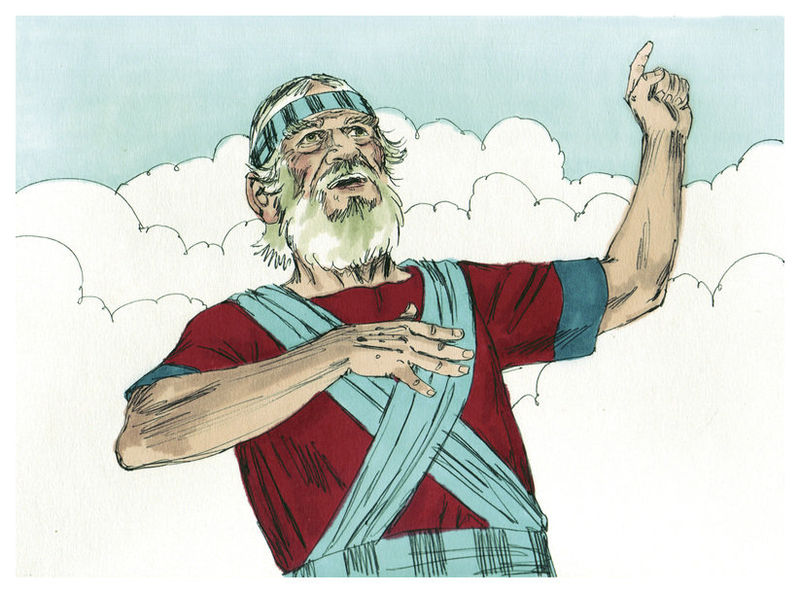
Before his death, Moses, the great prophet who spoke face to face with Elohim, prepared the children of Israel and their succeeding generations for the ministry of The Prophet to come, and warns the Israelites against false prophets. These instructions are as relevant today as they were in Moses’ day.
The Theological Wordbook of the Old Testament (pp. 544–545) lays out Moses’ instructions to YHVH’s people in five steps. In Deuteronomy 18:9–22, YHVH formally proscribes any involvement with the bogus mantic (i.e., relating to divination or prophecy) practices of the surrounding nations (vv. 9–14). Then having stated that a line of prophets would speak or write with the same authority as Moses, he commanded the Israelites to render the prophet the same obedience he had commanded them to give Moses (vv. 9–14). Five certifying signs of a true prophet (Ps 74:9; Matt 12:38; Acts 2:22) were then given:
- The prophet must be an Israelite or “of the brethren” (vv. 15, 18).
- He must speak in the name or voice of YHVH (vv. 16, 19, 20), with the death penalty prescribed for those who falsely claimed to do so (v. 20; 18:1ff; 1 Kgs 18:20–40).
- Supernatural knowledge of the near future was to be a sign of the authenticity of the prophet’s divine appointment (vv. 21–22; 1 Kgs 22; Jer 28, esp. v. 17).
- The prophet might perform some other miraculous signs (Deut 13:1ff; 1 Kgs 18:24, esp. v. 36).
- The final test of a true prophet of Elohim was that his prophecies had to be in strict conformity to or in agreement with the previously certified revelations by Moses at first and by the prophets to follow (Deut 13:1–18). The fifth requirement is emphatic, since the entire thirteenth chapter is devoted to it.
Deuteronomy 18:10, One who causes his son or daughter to pass through the fire.
The Abominable and Idolatrous Practice of Abortion Is Modern Baal Worship!

The ancient Canaanite practice of child sacrifice was done in honor of the Canaanite deity Moloch (see Lev 18:21 and 20:1–6). The name moloch in Hebrew means “king”with the root of the word meaning “to rule or reign.” Child sacrifice (the ancient form of modern abortion or infanticide) though a pagan practice that YHVH abhorred, was practiced by both houses or kingdoms of Israel after they had drifted into apostasy resulting in spiritual syncretism with the heathen cultures around them (see 1 Kgs 11:7; 2 Kgs 16:3; 21:6; 23:10,13; Jer 7:31; 19:5; Ezek 16:20; 23:37).
Baal, another prominent Canaanite deity,appears to be a synonym of Molach or Moloch (see Jer 19:5 and the Ency. Britan. eleventh edit., vol. 18, p. 676). After the children were sacrificed to this demon entity, the dead bodies were thrown into the garbage dump of the Valley of Hinnom or Tophet just below the Temple Mount in Jerusalem (Jer 7:31; 19:5–6). Apparently, the children were not burned alive, but were slain (by knife) like any other sacrifice before being thrown into the fire and then into the garbage dump (ibid.). The ancients sacrificed their children to appease their bloodthirsty gods of prosperity, sensuality and fertility (The Story of Civilization, vol. 1, by Will Durant, pp. 66–67, 297).
What can we learn from these random pieces of historical information concerning the ancient practice of child sacrifice? It was done in honor of the pagans’ deities; in other words, their idol was the king that ruled their lives. In our day, what is the chief deity in modern America and most other societies around the world? Is it not the love of money, materialistic wealth along with lustful desire for sex and pleasure combined with a preoccupaton with fun and entertainment? In ancient times, children were killed by a knife, thrown into the fire and then into the garbage dump. Today, what happens in America and many other countries with unwanted children? Parents abort their babies or have them murdered while being born (partial birth abortion) by using burning solutions to kill the baby in the womb. Then, with the aid of scalpels and scissors, the baby is hacked to pieces and then yanked piece by piece from the womb. Afterwards the corpse is tossed into a dumpster or the body parts are sold for “medical” purposes.
What reasons do parents give for murdering their children? “It will cost too much to raise them and it’s too much trouble” (greed, hedonism and selfishness). “It will interfere with my career” (selfishness and greed). “I want to have pleasure without responsibility” (selfishness, hedonism and greed). Regardless of the excuses, the reasons today are the same as those of the ancients. The motives are the desire for financial prosperity, plus greed, hedonism, selfishness and so on. Are we any different or any more “civilized” than the ancients? YHVH called abortion an abomination (which means he viewed the practice as “disgusting, abominable,abhorrent, detestable or loathsome,” see Deut 18:12).
Make no mistake about it, the modern practice of abortion is still the worship of the ancient murderous demon-god Moloch or Baal whether those practicing abortion know it or not. The reasons for engaging in this egregious and abominable practice are still the same, and the evil, murderous and demonic spirit motivating people to do it is still the same. Humans are no different today than they were thousands of years ago. Only the actors, costumes and venues have changed. Without the transforming power of Word and Spirit of Elohim at work to convert sinful humans from the kingdom of darkness and the worship of and obedience to Baal (Satan) to the kingdom of light and the worship of and obedience to YHVH Elohim, the actions and evil heart of man are the same today as there were yesterday.
Do you abhor that which YHVH calls an abomination? In Scripture, YHVH calls children and the fertile womb a blessing and not a curse (see Deut 28:11 and Ps 127:3–5). Carnal, sinful humans under demonic influences sadly are highly prone to turn that which YHVH good evil and that which is evil good.
Woe unto them that call evil good, and good evil; that put darkness for light, and light for darkness; that put bitter for sweet, and sweet for bitter! (Isa 5:0)
Deuteronomy 18:10–22, One who practices witchcraft…a prophet from your midst…who speaks in the name of other gods. There is a major implicit truth to be learned from juxta positioning these verses that otherwise may seem unrelated. It is this. The rejection of divine authority and the turning to the worship of other gods is witchcraft. This explains Samuel’s statement to Saul regarding the latter’s disobedience to the word of YHVH.
For rebellion is as the sin of witchcraft, and stubbornness is as iniquity and idolatry. Because thou hast rejected the word of YHVH, he hath also rejected thee from being king. (1 Sam 15:23)
Deuteronomy 18:15, A prophet from your midst, like me, shall YHVH your Elohim raise up for you.
Jewish and Christian Opposition to Moses’ Messianic Prophecy Moses—A Prophetic Type of the Messiah
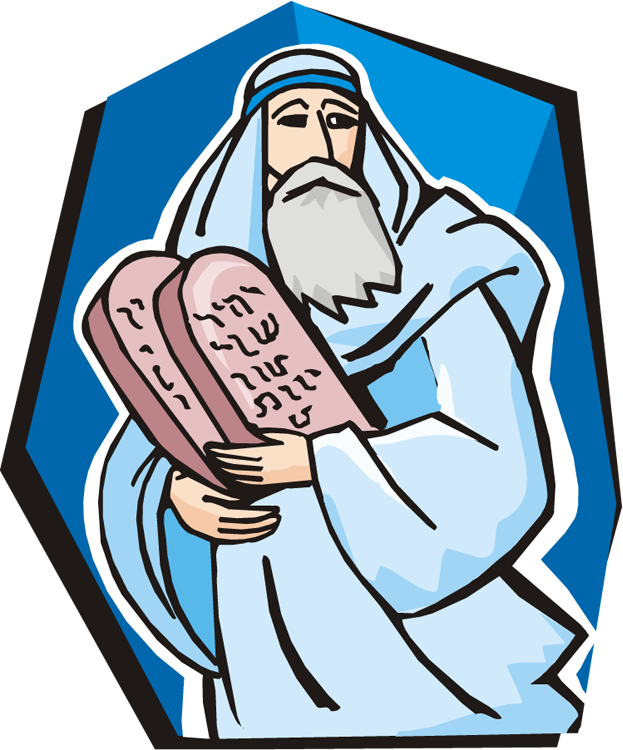
To all but the spiritually blind and hard of heart, it is clear that Moses’ Deuteronomy 18 prophecy concerning the coming Messiah was fulfilled in the person of Yeshua. Who else in the history of the world could have fulfilled this prophecy? Despite this, the non-believing religious Jews, to their discredit, run around in philosophical circles attempting to prove that this verse does not apply to Yeshua. Similarly, the Christian church, in its own way, also disbelieves this prophecy in their denouncement of much of “the Mosaic law.” Let us examine some of the arguments attempting to circumvent the simple truth of this messianic prophecy.
On the Jewish side, The ArtScroll Stone Edition Chumash in its commentary states, “Moses told the nation that just as he was one of them, so God would designate future prophets [plural, emphasis added] from among the people to bring them his word” (p. 1033, emphasis added). What is wrong with this statement? Is the verse quoted accurately? Moses said “prophet” singular, not “prophets” plural, as this Orthodox Jewish commentary incorrectly states. So in this manner, the Jewish commentators switch the focus off of a single prophet who would arise, and instead these dishonest and disingenuous rabbinics make it appear as if all the prophets recorded in the Scriptures helped to fulfill this prophecy. This is dishonest biblical interpretation and blatantly deceitful.
On the Christian side, does the “Jesus” of the mainstream church who, it is taught by many church leaders, broke the Sabbath and came to do away with the Torah-law of Moses, fulfill this prophecy? Didn’t Moses say that the prophet would speak only the words that Elohim would give him (and the implication is that those words would not contradict what was given at Mount Sinai)? So did Yeshua come to do away with the Torah-law or not? The answer is an emphatic NO!
Think not that I am come to destroy the law, or the prophets: I am not come to destroy, but to fulfil. For verily I say unto you, Till heaven and earth pass, one jot or one tittle shall in no wise pass from the law, till all be fulfilled. Whosoever therefore shall break one of these least commandments, and shall teach men so, he shall be called the least in the kingdom of heaven: but whosoever shall do and teach them, the same shall be called great in the kingdom of heaven. For I say unto you, That except your righteousness shall exceed the righteousness of the scribes and Pharisees, ye shall in no case enter into the kingdom of heaven. (Matt 5:19–20)
Moreover, in commissioning his disciples in Matthew 28:20, didn’t Yeshua tell them to do and to pass on to others all that he had commanded them?
Teaching them to observe all things whatsoever I have commanded you: and, lo, I am with you alway, even unto the end of the world. Amen. (Matt 28:20)
Furthermore, didn’t Paul instruct the saints to, “Follow me as I follow the Messiah” (1 Cor 11:1)? So how is it that so many people in the mainstream church believe otherwise about Messiah Yeshua and Paul relative to their teachings on the Torah-law? The point we are trying to make here is that the “Jesus” of the Sunday church who, it is taught, came, to one degree or another, to annul the Torah, does not fit the exact criteria of this prophecy of Deuteronomy 18:15–19. Either the Torah is correct and the mainstream church is wrong or it is the other way around. We choose the former to be the truth, not the latter!
A prophet…like unto me. Let’s now study the parallels between Moses (Heb. Moshe) and Yeshua the Messiah (Heb. Machiach)to see how the latter perfectly fulfilled this prophecy.
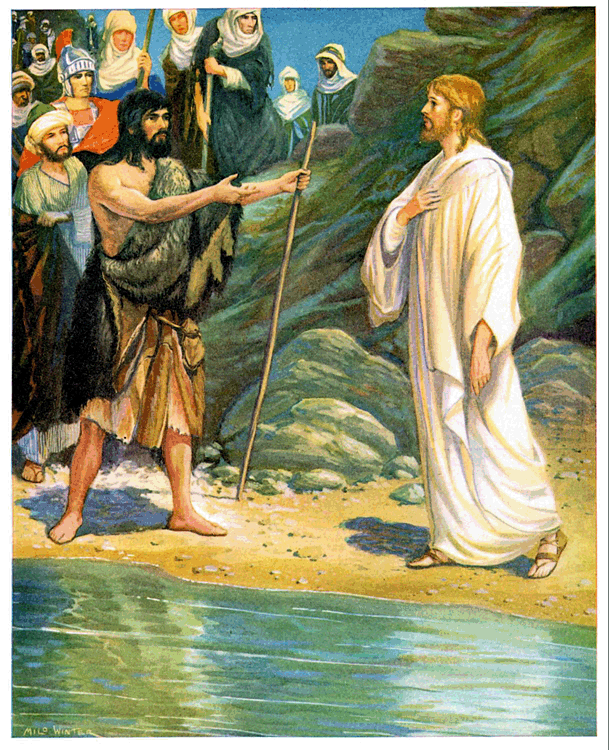
- Moses’ early life seems to foreshadow many details of Yeshua’s life and ministry. This really should not surprise us when we consider the following words from the Epistle to the Hebrews,
- Then said I, Lo, I come (in the volume of the book it is written of me,) to do thy will, O Elohim. (Heb 10:7 from Ps 40:7).
- The author attributes informs us that this verse was fulfilled by YHVH-Yeshua. Yeshua himself, when confronting the Pharisees in John 5:46, said “For had you believed Moses, you would have believed me, for he wrote of me.” Here we see both the New Testament drawing parallels between Moses and the Messiah.
- This of course begs the question, what did Moses write about Yeshua? Of course there are many places in the Torah that speak of the Messiah in types and shadows. This is a section of scripture that definitely verifies the words of Yeshua. Let’s now explore this passage to see how it pointed to the Master.
- There are similarities between the names Moshe (meaning “drawn from/to draw”) and Messiah (meaning “to smear” [i.e., with oil]). Etymologically there is no connection between the two, and the former terminates in the Hebrew letter hey v and the latter in a chet j, but the similarities in the two names are striking nevertheless.
- Moses was the only man in the Scriptures beside Yeshua who was a prophet (Deut 34:10), a priest and a king (Deut 33:5). While there may not be any place that specifically refers to Moses as a priest, he nevertheless was a Levite and held a priestly role as being in a higher office than even Aaron the high priest, for he communicated directly with YHVH and acted as an intermediary between YHVH and man, even as Yeshua acts as a high priest between YHVH and man (Heb 4:14). By contrast, David was a king and a prophet, but not a priest. Samuel acted as a priest and was a prophet, but not a king. Only Yeshua and Moses were as all three: prophet, priest and king.
- Both Moses and Yeshua were born under the tragic circumstance of the murder of innocent boys. Pharaoh tried to kill all the baby boys including Moses, and Herod tried to do the same when Yeshua was a child.
- Moses grew up to become the “savior” of Israel in that he led the people out of Egypt. Yeshua, of course, is the greater and spiritual Savior of Israel in that he has delivered his people from sin and the spiritual Egypt of the world, the flesh and devil.
- Both Moses and Yeshua spent all or part of their childhood in Egypt (Matt 2:13–19), and both left Egypt for the Promised Land.
- Moses, after growing up into manhood, was rejected by his brethren. Yeshua, of course, was also rejected by his brethren, though more due to the fear of the religious leaders of the day.
- Moses began his ministry after 40 years in the wilderness; the Messiah spent 40 days fasting in the wilderness.
- Then Moses has the burning bush experience. There is much prophetic symbolism in this story. The word “bush” is the Hebrew word ceneh, which is from an unused root meaning “to prick.” This indicates that the bush was most likely a thorn bush. Since the earth was cursed at the fall of man and now brings forth thorns, and since fire is a biblical metaphor for judgment, a burning thorn bush that is not burnt speaks of YHVH’s mercy. It also speaks of our Messiah, who became sin, and was judged, yet by his resurrection was not consumed! That Yeshua wore a crown of thorns points us to the burning bush. Of course, the voice that spoke out of the burning bush was YHVH, or Yeshua in his preincarnate state.
- At the burning bush, Moses learns the name of YHVH. He will later use this name and make it known among the people. Yeshua did this also in his prayer to the Father in John 17:6 when he declared, “I have manifested your name to the men whom you have given me.”
- Moses, being a man, felt insecure about his charge to lead the Hebrew people out of bondage. He tried to avoid this divine calling by saying that he was not an eloquent speaker. YHVH answered saying, “Who makes the mute, the deaf, the seeing, or the blind?” Isn’t it interesting, and a testimony to the deity of Yeshua, that Yeshua was able to make a man who was born blind able to see? (John 9:1, see also Luke 7:22) Similarly, Yeshua at Gethsemane asked the Father, like Moses, to release him from his divine mission to suffer and die (Matt 26:39)?
- Notice that before Moses goes back to his brethren, they must experience the “great tribulation” of the bondage of severe slavery. In the same way, we can infer that the end-time great tribulation period will precede the return of the Messiah (Matt 24:21 and 29–30).
- In our comparison between Moses and Yeshua, let us consider the story of the circumcision of Moses’ sons. Surprisingly, the sons of Moses, the “stranger in a foreign land,” had been living all these years and NOT keeping the Torah–instruction of Elohim. Then, just as Moses was preparing to “return,” there is recognition that they had been out of covenant with YHVH and had been disobedient to his Torah, including the command to circumcise all male children. Zipporah, possibly depicting the “church,” was offended by this fact. Yet, in this story, Moses is the one who was threatened with death because Gershom, his first born son, was not circumcised. Similarly, Yeshua had to die because for our the sins (or the violation of the Torah), which had separated us from Elohim as we were living in a strange land spiritually (the world) and out of covenantal relationship with Elohim.
- Twice, Zipporah calls Moses a “bloody husband” (Exod 4:25–26). Is YHVH being redundant here, or is he drawing our attention to this event? Then blood is literally cast upon Moses’ feet (the Hebrew implies this). Surely our Savior when dying on the cross had his own blood upon his feet, which he shed for our transgressions. Gershom (literally meaning “foreigner” or “sojourner”), one of Moses’ two sons, could be viewed allegorically as being representative of a redeemed believer in his pre-converted, unsaved and uncircumcised (of heart) state. It was the blood of Yeshua shed on the cross, in our place, that saved us from the wrath of Elohim and paid the death penalty price for our sins. Likewise, Moses’ sons were “guilty” before YHVH until blood was shed. In an abstract and allegorical way, Moses’ action toward his sons may point to Yeshua redemptive work on the cross.
- Moses may have had some kind of physical inability to speak well (Exod 4:10). In our comparison between Moses and Yeshua, what are the deeper implications of this? In their Torah commentaries, the Jewish sages hold that Moses was tongue-tied. For the reason of being better able to communicate with Israel, after YHVH had become angry with Moses, Aaron was given to Moses to be his spokesman. In the same way, until he returns to reign in the age to come, Yeshua is physically unable to explain his Word to us in person. In the flesh, he is not present with us. For that reason, he has sent us a Helper or a Comforter or the Spirit of Elohim, who shines spiritual light upon the Word of Elohim through Yeshua the Messiah (John 15 and 16), who is the Word of Elohim in flesh form (John 1:1–14).
More Parallels Between Moses and Yeshua
As we have just learned, Scripture infers that Moses prophetically foreshadowed Yeshua the Messiah. Perhaps the most notable scripture in this regard is the Deuteronomy 18 passage where Moses, speaking to the Israelites, prophesies that, “YHVH your Elohim will raise up unto you a prophet from the midst of you, of your brethren, like unto me, unto him you shall listen” (verse 15). Below we have compiled a list of similarities between Moses and Yeshua, which are too numerous to be merely coincidental (the majority of these insights are from the book Gleanings In Exodus by A. W. Pink).
- Both were Israelites.
- Both were born while their nations were under the dominion of a hostile power.
- As infants the lives of both were imperiled by the reigning king.
- Both were adopted (Joseph was the non-biological, adoptive father of Yeshua, whose “biological” Father was YHVH Elohim).
- Both spent their childhood in Egypt.
- Both were filled with deep compassion and sympathy for the plight of Israel.
- Both renounced their kingly glory and took on the form of a servant.
- Both were rejected by their brethren.
- Both were shepherds (Exod 3:1 and John 10:11, 16).
- Before entering into their ministry calling both spent time in seclusion in the wilderness: Moses for 40 years and Yeshua for 40 days.
- Both were commissioned by YHVH to set the captives free.
- The commission of both was confirmed by signs and miracles.
- Moses’ first two miracles involved his demonstrating his power over the serpent and leprosy (Exod 4:6–8. After commencing his public ministry Yeshua’s first miracles were power over the serpent (Matt 4:10–11) and over leprosy (Matt 8:3).
- Both delivered Israel from captivity. Moses delivered the Israelites from Pharaoh and Egypt (biblical symbols for Satan and the world, the flesh and the devil) and Yeshua delivers his people from the real things.
- The children of Israel were baptized into Moses (1 Cor 10:1–2) and redeemed believers into Yeshua (Rom 6:3).
- Both had their authority challenged.
- The lives of both were threatened.
- Both experienced deep sorrow over the ingratitude of their people.
- The love of both for their people was unquenchable.
- Both were prayerful.
- Both were faithful (Heb 3:5; Rev 3:14).
- Both provided Israel with water (Num 20:11; John 4:14).
- Both were kings (Deut 33:4–5; Luke 1:32–33).
- Both were prophets (Deut 18:18; John 7:16; 8:28).
- Both were priests (Ps 99:6; Lev 8:15–16; Heb 9:14).
- Both were mediators between man and the Creator (Deut 5:5; 1 Tim 2:5).
- Both were mediators of a covenant (Exod 34:27; Heb 8:6).
- Both sent out 12 men.
- Both had seventy elders or witnesses (Exod 24:9, Luke 10:1)
- Both had intimate communion with their Elohim.
- Both fasted for 40 days.
- Both were glorified on a mountain.
- Both washed their brethren with water (Lev 8:6; John 13:5).
- Both walked in obedience to Elohim and his laws (Exod 40:16; John 9:4; 14:10).
- Both erected a tabernacle or temple: Moses a physical one, and Yeshua a spiritual one.
- Both gave their people an inheritance (Josh 1:10–11; Eph 1:11).
- Both had to die prior to entering the Promised Land.
- Moses had a second appearance (Matt 17:3) and Yeshua is coming again.
Can there be any doubt that Yeshua was the Prophet to whom Moses makes reference in Deuteronomy 18:15 that YHVH Elohim would raise up who would be like Moses himself? Those who would deny the Person and work of Yeshua the Messiah have to explain away the many prophetic types and shadows that exist in the Tanakh that were only fulfilled by Yeshua the Messiah. May these truths strengthen your faith in and love for Yeshua, the Sent One from Elohim!
Deuteronomy 18:20, To speak or/and who speaks. The KJV (as does J. P. Green, YLT and LXX in their Bible translations) translates the Hebrew conjunction vav as and, while the NKJV (and NIV, NAS, ASET, JPS, RSV, NEB) translates it as or. The difference between and and or may seem subtle, but it changes the meaning of the sentence. If it is and, then the death penalty falls only on one who speaks presumptuously and in the name of another god. If it is or, then only the prophet who prophesies in the name of another god shall die. The presumptuous prophet who prophesies out of his own will is only to be ignored.
If the meaning of vav is “or,” then both the presumptuous prophet (one who speaks a false word in his own name), and the prophet who speaks in the name of a false god are both to be ignored and given the death penalty. If this is the case then there appears to be an inconsistency in the Scriptures regarding Nathan the prophet, who was not killed for speaking a false prophetic word. Evidently gives grace to a true prophet (e.g., Nathan) who, on occasion, misunderstands the prophetic words they heard from YHVH and thus relayed an incorrect message to the people. As soon as that prophet realizes his mistake, we is duty bound before YHVH to make the correction and transmit the correct word and interpretation to the people. This is what happened with Nathan when he told David to build a house or temple for Elohim, but had to quickly correct his prophetic word once YHVH revealed to him that he had misinterpreted the prophecy and thus had relayed an incorrect word to David. If vav means “and,” then the death penalty would not have fallen on Nathan, and the apparent inconsistency in the Scriptures is resolved. For this reason, we choose the word and and not or as the correct translation of the Hebrew conjunction vav.
Deuteronomy 19

Deuteronomy 19:21, Eye for eye.This is to be interpreted allegorically to mean that the punishment must fit the crime, and that the scales of justice must be balanced. There are no examples in Scripture where eyes were plucked out or teeth knocked out as punishment for a crime that was committed.
Deuteronomy 20
Deuteronomy 20:1, Battle against your enemies.Scripture tells us to oppose the enemies of YHVH, that YHVH’s enemies should also be the enemies his people. Today, our enemies are spiritual (2 Cor 10:3–5; Eph 6:12). This is because behind every physical enemy is an evil spiritual entity. Let’s face it, we are living in a time when the forces of evil are attacking and attempting to eradicate any vestiges of righteousness everywhere. Do you have the will to fight for what is right—to fight YHVH’s enemies and to stand for truth and righteousness?
The Bible calls YHVH’s people to be warriors—spiritual warriors. Paul talks about the spiritual battle in which the saints are to be engaged (ibid.). One aspect of this battle is to cry aloud for the sake of truth, using biblical metaphors, to be like a light on a hill, and to be a watchman on the wall warning those around you about what is coming. Each of us must ask ourselves what we are doing in this regard. One way to accomplish divinely mandated mission is to support those who are trying to get the truth out, who are on the front lines fighting evil while, at the same time, promoting truth and righteousness. One way to do this is by helping to support those who are on the front lines of this battle financially and through one’s prayers.

Deuteronomy 20:19, Do not destroy its trees. In its commentary on this passage, A Torah Commentary For Our Times states, “While the commandment deals specifically with cutting down trees during a siege, Jewish interpreters extend it to cover all forms of wasteful destruction under the principle of bal tashchit, or ‘do not destroy’…[all w]asteful destruction is condemned. ‘Anyone who deliberately breaks dishes, tears clothing, wrecks a building, clogs up a fountain, or wastes food violates the law of bal tashchit’” (various rabbinical sources are cite vol. 3, p. 143).
In Genesis 2:15, Elohim commissioned Adam and Eve to “tend [or dress] and keep the garden.” The word tend literally means “to serve, work, dress, labor”in the sense of a servant or steward. The word keep means “to observe, guard, watch over, or preserve.” This was one of Elohim’s first Torah-commands to humans—to take care of or nurture the planet. Gardening is the second oldest profession (after animal husbandry) that was assigned to man by Elohim. Caring for trees and plants is a major aspect of caring for the garden.
Do you view yourself as a steward with a divine mandate to help preserve, watch over, and guard all that YHVH has given you responsibility over including your body, your marriage, your children, your gifts and talents, your car, your job, your home and garden and everything else in your life? Do you view doing this as a good witness to those around you, as leaving a legacy for future generations, and as glorifying your Father in heaven?
Deuteronomy 21–25 Gives 72 Torah Commandments
This section of the Torah (Deut 21:10–25:19) contains 72 commandments, which is more than in any other Torah portion. In this passage there are rules pertaining to all aspects of human relations showing that the “Torah deals with the real world. It does not present a world where all people get along with one another or rush to take care of one another’s property. Instead, it ‘takes into account the grim reality that people do not achieve the desired observance of “you shall not hate others in your heart”’” (A Torah Commentary For Our Time vol. 3, p. 150).
In studying this portion, one can easily miss the point of a particular command if one views it strictly in its pashat (most literal) meaning. For these commands to have relevance in our day, one must view them as principles that have a broad range of applications. The specific examples Torah gives are merely representative of one of but many life situations to which the principle behind the example could apply. Keeping this in mind, this Torah portion will give you much to ponder pertaining to your day-to-day walk (or halakhah).
In these chapters we see a plethora of laws concerning many seemingly small details regarding human life. Many people in the church have the tendency to broadly sweep away these commandments with such dismissive cliches as, “We’re now under grace…,” or “We’re not under the law anymore…..” But please observe how many of the civil laws of our nation regulating actions between various members of society are based upon YHVH’s laws found in the Torah.
As many of us make our way back to a more biblical, truth-based lifestyle and orientation, we begin to see that (a) YHVH cares about the details of our lives, and (b) these laws, while sometimes hard to understand, are for our own well-being and blessing. Do you still nurse a “pick and choose” or “have it your own way” mentality with regard to YHVH’s biblical commandments choosing to follow the ones you want and making excuses why you can’t (or don’t want to) follow the rest? By doing so, what blessings are you depriving yourself of, and how are you hindering your love relationship with YHVH?
Some of the laws in these chapters may be hard to observe nowadays. With others, due to our church background, we may have the tendency to spiritualize them away, thus, in essence, rendering them of none effect in our lives and thereby placing ourselves above YHVH’s Torah-law thus becoming a law unto ourselves. This is not a good thing! This is what Adam and Eve did in the garden of Eden at the tree of knowledge. Is this not at the root of secular humanism, where every man is doing what is right in his own eyes instead of obeying YHVH whatever the cost? Who is the Master of your life? You or YHVH? Let us not forget the words of Yeshua, “Not everyone who says to Me, ‘Lord, Lord,’ shall enter the kingdom of heaven, but he who does the will of My Father in heaven” (Matt 7:21), and “But why do you call Me ‘Lord, Lord,’ and not do the things which I say?” (Luke 6:46).
How do you view laws about women wearing men-type clothing, wearing fringes on the corners of your garments, mixing certain types of fibers in your clothing, lending money without interest, caring for the widows and orphans, personal hygiene, the family purity laws (e.g., men not having sexual relations with their wives during their monthly cycles), removing blood from all meat before eating it, men wearing beards, faithfully tithing, following the biblical dietary laws, and observing YHVH’s Sabbaths (weekly and annual), etc.? These are lifestyle-changing laws, many of which go contrary to the current mores of our society.
Are YHVH’s saints not called to be a kadosh, set-apart, special and peculiar (i.e., treasured) people before YHVH? Following these laws to the best of our ability will help us to be the people that YHVH has called us to be. What progress are you making to bring your life into conformity to his standards of righteousness?
Pursue peace with all people, and holiness, without which no one will see the Lord. (Heb 12:14)
[B]ut as He who called you is holy, you also be holy in all your conduct, because it is written, “BE HOLY, FOR I AM HOLY.” (1 Pet 1:15–16)

